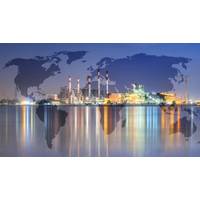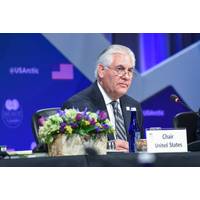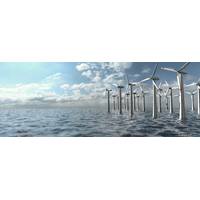Nordic countries debate energy policy after spikes in power prices
On Thursday, the hourly electricity prices in certain parts of Scandinavia reached record levels. They were tenfold higher in some cases than average, due to cold weather and lower wind power production. This prompted politicians to suggest a change in energy policy. In Denmark, the price per megawatt-hour (MWh) for an hour starting at 1600 GMT has risen to 936 Euros. South-western Norway and Southern Sweden have seen prices above 700 Euros/MWh.
Norway's oil and gas sector invests record amounts due to inflation
A survey by the Norwegian National Statistics Office (SSB) showed that investment in oil and gas projects in Norway will reach a new record in 2018. It may even increase in 2025, as inflation increases costs for development. Norway has sanctioned new fields in recent years as companies have taken advantage of tax breaks during the pandemic to accelerate projects. This is part of a strategy to increase oil and gas production over decades.
Norway's power grid operator reduces its demand forecast and deficit projection
Statnett, the Norwegian transmission system operator, said that the growth of Norway's electric demand in the next few years will be slower than originally projected because the electrification rate is lower than expected. The TSO stated that the Nordic countries will no longer face a deficit in power as a whole during this decade. However, some regions may face a shortage which must be met by imports. Statnett's…
Gasum on an Acquisition Spree
Finland-based integrated gas company Gasum takes steps forward in its growth strategy by acquiring AGA’s Clean Energy business and Nauticor’s Marine Bunkering business from Linde AG."These acquisitions will enhance the development of the Nordic gas market and create a platform for Gasum to provide a broader offering to meet the increasing demand for low-emission energy solutions from customers in industry, maritime and road transport…
How to Determine Which Countries Have the Best Energy Policies

Which countries have the best energy policies? This is an interesting, and rather obvious, question, considering that every country’s energy practices impact the world in one way or another. But it’s one you don’t often hear asked.That is probably because it’s hard to compare countries in any sensible and fair way, given the differences in population, size, economy and resources.Still, the world needs to know who does it best.
Europe Installs 1.9 GW Offshore Wind Capacity in H1
Europe added 1.9 GW of new offshore wind was installed in the first half of 2019, up from the 1.1 GW added in the same period in 2018, according to figures released by WindEurope.The UK (931 MW), Denmark (374 MW), Belgium (370 MW) and Germany (252 MW) accounted for these installations. This includes Hornsea 1 in the UK which, when completed, will be the world’s largest wind farm with 1.2 GW.In the first half of 2019 Europe invested €8.8bn in the construction of future wind farms…
Polaris Refuels in Finland
World’s first liquefied natural gas (LNG) icebreaker Polaris refueled for the first time at the Nordic countries’ largest LNG terminal in Tornio in the icy Röyttä Harbour.As of yet, LNG is the world’s most environmentally friendly ship fuel. It does not contain sulphur, and its combustion generates approximately 87% less nitrogen oxides in comparison to regularly used Marine Diesel Oil (MDO). Furthermore, LNG’s particulate matter emissions are nearly non-existent.From the outset…
Gasum Consolidates Nordic LNG Market
The Liquefied Natural Gas (LNG) company Skangas is renamed Gasum (See MarineLink report ). The Scandinavian distributor and producer of small-scale LNG claimed that the name change will strengthen the Gasum brand in the Nordic countries and the position of Gasum as the leading provider of LNG in the region. Gasum operates under one strong brand in the Nordic countries.The energy company Gasum increased its shareholding in Skangas from 70% to 100% in October 2018.
Google to Tap the Power of Offshore Wind
Google invests $700 mln in Danish data center, secures green energyGoogle will invest almost $700 million in a Danish data centre, the latest investment in the Nordic region which is known for its abundant renewable energy.Google said it would match the new centre's use of energy made from fossil fuels with green energy generated through so-called power purchase agreements (PPAs).The Nordic countries, which can generate electricity relatively cheaply from renewable sources such as hydropower and wind…
Arctic Council Meeting Stirs Hidden Tensions

As foreign ministers from countries with territory in the far North celebrated an agreement on fighting climate change this week, one topic seethed below the surface: growing competition for Arctic resources and sea lanes as the ice melts. Russia, one of eight members of the Arctic Council which includes the United States, Canada and the Nordic countries, has been pouring money and missiles into the Arctic as well as reopening and building bases there.
Vattenfall to Invest $1.9 bln in Wind Power in 2017-2018

Sweden's Vattenfall will invest 17 billion crowns ($1.94 bln) in onshore and offshore wind power during 2017-2018, the state-owned utility said on Tuesday. Spending on wind power will account for 60 percent of an investment programme worth 28 billion crowns, highlighting a strategic shift from fossil fuels to renewable energy. Most of the rest of the funds will go on solar power and distribution. The company aims to commission 2,300 megawatts (MW) or more of new renewable capacity in the five years to 2020.
Gasum Expands biogas production in Sweden
With the acquistion of Swedish Biogas International having been completed today, 2nd January 2017, Gasum holds the entire share capital of the company. The new company Swedish Biogas International Gasum became Scandinavia's largest biogas producer.The acquisition allows the use of biogas for Gasum supply industry and transport in the Nordic countries. Acquisition is an integral part of the company's strategy. The goal being to develop an active Nordic gas ecosystem, where biogas plays an important role.
Gasum now Biggest Biogas Producer in Nordic countries
Gasum has purchased 100% of the shares of the Swedish biogas producer Swedish Biogas International. The transaction makes Gasum the biggest producer of biogas in the Nordic countries. In the transaction concluded today, five biogas plants located in Jordberga, Katrineholm, Lidköping and Örebro as well as a majority shareholding in a production plant located in Västerås, Sweden, are transferred to Gasum’s ownership. Swedish Biogas International also has a 50% shareholding in Vadsbo Biogas.
Estonia Grants Oil Shale Industry a Tax Break
Estonia's government is giving the country's oil shale miners a 40 million euro ($44 million) a year tax break to help them weather weaker global oil prices. The Baltic state is one of the world's largest and oldest miner and processor of oil shale, a rock rich in organic matter called kerogen, which the country has used for more than 50 years to generate the bulk of its electricity. But low oil prices, coupled with…
Wärtsilä Delivers Largest Biogas Plant
Wärtsilä has been awarded the order to supply a biogas liquefaction plant that will produce fuel for public transport vehicles, mainly in Norway. The supply contract was signed in December 2015, and is with Purac Puregas AB, based in Kalmar, Sweden. The Wärtsilä plant will be installed at the paper mill in Skogn, Norway and will convert the cleaned biogas from fishery waste and residual paper mill slurry into liquid fuel. The liquid will be cooled to minus 160°C and stored in insulated tanks.
Norway Planning to End Renewable Subsidy Scheme by 2021
Norway is planning to end its green energy subsidy scheme by 2021 and aims to increase competition in building power lines to other countries, the government said on Friday. Norway launched a common renewable energy support scheme with Sweden in 2012, so called "el-certificates", aiming to increase electricity output from such sources as wind, hydropower and biomass by 28.4 terawatt-hours (TWh) per year by 2020. The increase in subsidised renewable energy in the Nordic countries…
Statoil’s 50 years to be Recorded
Statoil has decided to launch a large project to write the story about the company for its 50th anniversary in 2022. The University of Oslo has been chosen the main supplier in a project that will also involve other Norwegian research institutions. «Statoil’s history» will be a historical fact-based research project to be ready for the company’s 50th anniversary in 2022. The project aims to acquire new knowledge about…
First Shipload of LNG Arrives at Skangas Terminal Finland
Sunday July 10th 2016 the first shipload of liquefied natural gas (LNG) arrived at the Gasum’s subsidiary Skangas LNG terminal in Pori. To be completed in August, the facility is the first LNG import terminal in Finland. LNG was brought with the time chartered Skangas Coral Energy carrier from the North West Europe. The Skangas LNG terminal is undergoing commissioning, and commercial deliveries to customers will begin in September.
MacArtney Supplies LISST-VSF to Europe
Specialized instrument made specifically for ocean optics communities is to be applied by German Center for Materials and Coastal Research providing a scientific basis for sustainable development and future-oriented coastal management. The coasts represent an important field of research. The area in which land and water meet is a hot spot of species diversity and exchange processes and calls for closer analysis and assessment. This is undertaken by e.g.
PBES Sets Up Danish Operations in Copenhagen
Plan B Energy Storage (PBES) announced today the creation of PBES Denmark ApS. PBES Denmark will be the cornerstone of the energy storage industry in Denmark, delivering local jobs and focussing on bringing energy storage systems to marine and grid solutions in Denmark. PBES is the industry leader in MWh grid and marine solutions, delivering the most powerful and safe systems in the world today, supported by the best service and support group in the energy storage industry.
